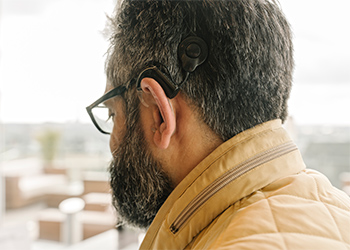Hearing/Cochlear Implant Program
Restoring Hearing Loss with Cochlear Implants
 Beth Israel Deaconess Medical Center’s Hearing/Cochlear Implant Program is staffed by our team of a highly trained, specialized surgeon and a group of audiologists who can help decide if a cochlear implant is right for you. We are a proud member of the American Cochlear Implant Alliance, an organization of hearing health professionals working to improve access to and increase awareness of this method of hearing restoration.
Beth Israel Deaconess Medical Center’s Hearing/Cochlear Implant Program is staffed by our team of a highly trained, specialized surgeon and a group of audiologists who can help decide if a cochlear implant is right for you. We are a proud member of the American Cochlear Implant Alliance, an organization of hearing health professionals working to improve access to and increase awareness of this method of hearing restoration.
Meet Our Cochlear Implant Program Team

James G. Naples, MD
Otolaryngology

Bianca Berkenwald, AuD, CCC-A
Audiology

Tiffany Berman, AuD, CCC-A
Audiology

Valeria Duque, AuD, CCC-A
Audiology

Carmen Wilson, AuD, CCC-A
Audiology
